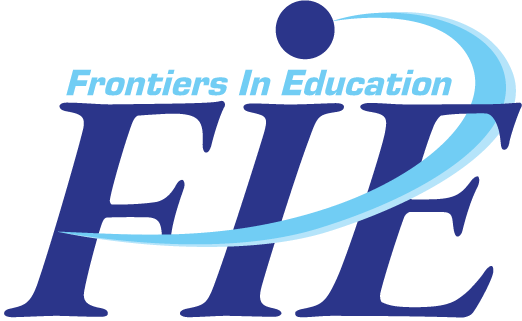Special sessions offer participants opportunities to explore particular issues in greater depth in interactive settings. The special session facilitators structure the agenda and interactions. Special sessions are intended to provide presenters and participants "collaborative learning experiences at the frontiers."
Description
Special sessions at FIE 2015 are intended to provide presenters and participants "collaborative learning experiences at the frontiers." Through Special sessions, FIE attendees enjoy opportunities to co-create knowledge or community. Examples might include setting the future directions for the engineering education community or constructing shared understanding of the essence of CS. FIE attracts a broad spectrum of participants interested in diverse topics such as software engineering education, engineering in K-12, engineering in a global environment, electrical engineering education, diversity in engineering, and more. Special session topics can and should be designed to appeal to a large cross-section of that broad audience, neither so narrow as to appeal to a very small number of attendees, nor so broad as to be unmanageable.
Special sessions should reflect the growing understanding that effective learning environments are created when session participants are interactively constructing and sharing their learning. In an interactive Special session, the focus is on the learners and the learning that is occurring, instead of on a single presenter or a panel.
Special session organizers should also describe how and where the results of the Special session will be reported.
Special sessions will be awarded to organizers through a competitive evaluation process. Proposals for special sessions that include submission of peer-reviewed publications are preferred, since archival publications in the proceedings provide a legacy for the session.
Key Characteristics
- Special sessions are scheduled as part of the technical program in parallel with traditional paper presentations.
- Special sessions allow a variety of nontraditional formats and emphasize the involvement of all audience members in cooperative learning.
- Special sessions are nontraditional in the sense that they are not like Pre-conference Workshops. They give session leaders an opportunity to take risks and try something that may be unproven in content and/or format. Thus they provide experiences that are "at the frontiers."
- Proposals for special sessions will be peer-reviewed by at least three reviewers.
- Sessions are 90 minutes in length.
- All organizers and presenters in special sessions are expected to register for and attend the conference.
- Special sessions should include a way for the results to be reported to attendees and the community at large.
Proposals
All proposals for special sessions at FIE 2015 must be submitted electronically no later than February 6, 2015 through the conference submission web site: http://edas.info/N19053. Each person involved in the session must be added as an author in the EDAS submission.
Contact information for the session organizer should be entered in the spaces provided on the submission web page. The proposal text should provide the following information.
- Contact information (name, affiliation, phone, and email) for each anticipated facilitator or presenter in the special session
- Goal(s) of the session
- Description of topics/subjects/content of the session (approximately 200-300 words)
- Session agenda (Please give details and approximate time allotted for each activity)
- Brief description of proposed peer-reviewed full papers from session presenters (approximately 200-400 words)
- Description of the anticipated audience
- Expected outcomes or future work as a result of this session (approximately 100 words)
- How and when the outcomes of the session will be reported to participants and the general community (approximately 100 words)
- Justification of why the proposed session should be considered for a special session (approximately 100 words)
- All organizers and presenters in panels and special sessions are expected to register for and participate in the full conference.
Timeline
February 6, 2015 -- Initial proposals are due. For Special Sessions and Panels, if full papers are to be submitted by presenters, those abstracts also are due Feb. 6, 2015 and the papers will follow the same timeline as other papers.
March 16, 2015 -- Authors will be notified of acceptance, acceptance with suggestions, or rejection of their proposal.
April 27, 2015 -- Responses to suggestions for modifications or clarifications are due.
July 10, 2015 -- Final session descriptions, outlines, summaries, and accompanying papers are due.

